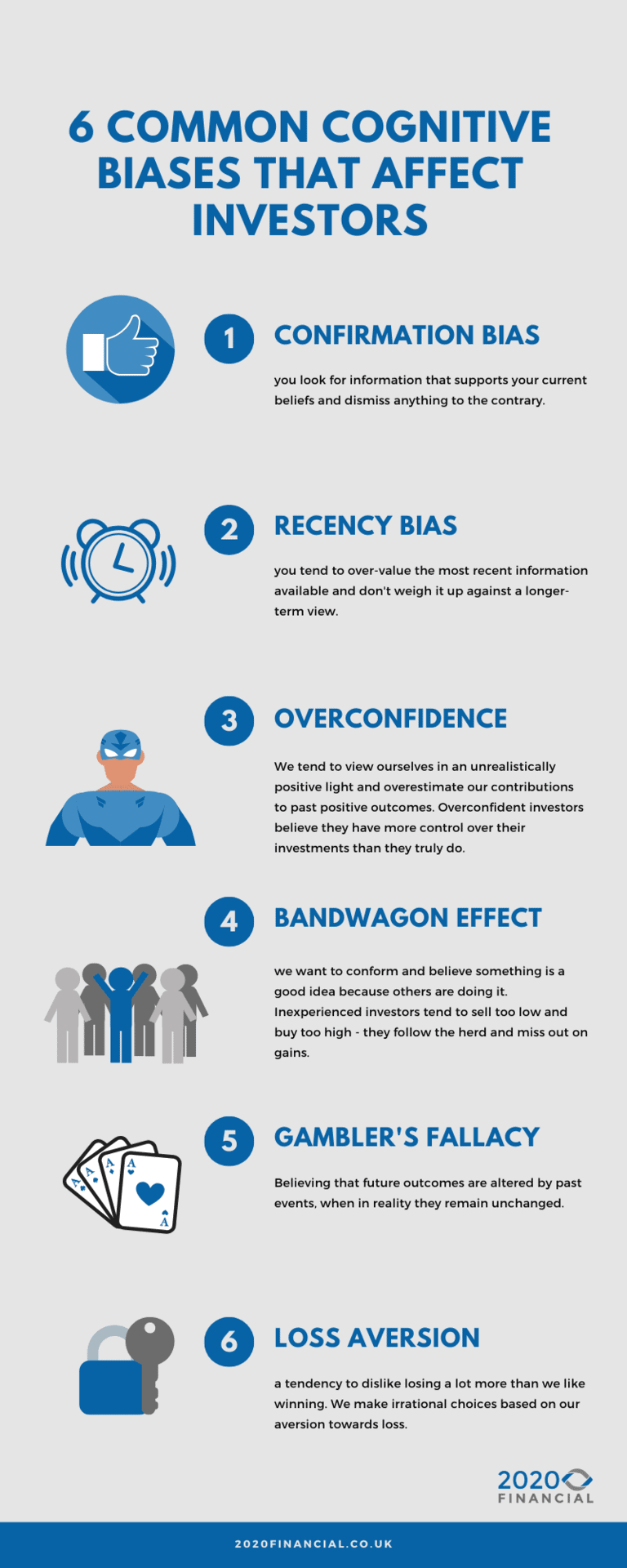The increased choice and flexibility for accessing your pension in the UK has brought with it added responsibility and risk. Many people are now also questioning whether they need a financial adviser for their pension. A study of those with pensions in flexi-access drawdown, carried out by insurance giant Zurich, found that a large percentage were unprepared and uneducated about the risks they were taking on. Despite that many were choosing to go it alone without consulting a financial adviser.
So, do I need a financial adviser for my pension? You don’t need a financial advisor for the state pension or guaranteed pensions. But if your pension is based on investment performance it would be a wise move. Zurich estimates that almost 41% of those in drawdown without advice will run out of money in retirement
That’s not to say that you absolutely need a financial adviser but the evidence published by Royal London in 2019 suggests that you’ll be wealthier in the long-term if you have one.
Financial advisers don’t have a crystal ball when it comes to investing, but they have been trained to take into account all of the moving parts that make long-term financial planning so complex.
In this guide we’re going to explain why you might need a financial adviser for your pension, how much pension advice costs, whether you need a financial adviser to access your pension, plus how to find one and what questions to ask them.

An independent financial advisor for pensions can help you with:
- Manage your risk
- Keep you on track with your goals
- Choose diversified investments (location and industry-based)
- Avoid common investor biases and expensive mistakes
- Access your money tax-efficiently
- Understand and evaluate the costs involved with different investment options
- Understand how to manage funds flexibly over the long-term
- Regularly review and refine your investments
- Keep you up to date with pension rule changes that might affect you
- Implement a Plan B, C or D

Need pension advice? Talk to Simon, our Pension Financial Advisor & Retirement Planning Specialist. Schedule a free introductory call today
Financial planning, in essence, is designed to help you meet your goals and aspirations over your lifetime. Effective financial planning is a continuing process of anticipating and adapting to changes in personal circumstances over the long term.
Independent financial advisers for pensions are trained to adapt financial plans to changing circumstances, whether they are within or outside of our control. Unfortunately, for those going it alone without advice, the human mind is not programmed to think long term, preferring rewards today over larger rewards tomorrow, and switching off in the face of complexity. {Link to a video about common cognitive biases}
Everyone’s circumstances are different. Your own circumstances will affect whether you need a pension financial adviser or not and how long for. You may only need one-off advice to set you up in a scheme, or you might need ongoing advice.
If you have a guaranteed pension (like a final salary pension or a guaranteed annuity rate) then it’s unlikely you’ll ever need a financial advisor, but if you have a defined contribution pension then it could be in your best interests financially, to get pension and financial advice.
It might seem counterintuitive to pay someone to manage your money. But the research has shown that overall having a financial adviser makes you wealthier in the long-run.
Why you might need a financial advisor for your pension
For most of us it’s likely our retirement could span over 30 years. You’re faced with having to manage and invest a large pot of money that you can’t afford to lose. You need to take enough out to live on without taking too much and running out. But you don’t know how long you need the money to last – this is where a financial advisor can help.
Even for experienced investors, a pension is likely the largest investment they’ll have ever made, and almost certainly the longest term.
There are a number of times when you may decide to employ the services of a financial advisor to help you with your pension:
- When you’re looking to retire
- When you plan to use flexi-access drawdown
- If you’re inexperienced at investing large sums of money
- You want to maximise returns on your money
- You want to understand how to access your cash tax-efficiently
- To reduce investment risk
- To find the best annuity deal
- You plan to leave a financial legacy
- If you want to consolidate multiple pension pots to make things easier to manage
Most people get financial advice from friends, family and co-workers, which can be incredibly risky. Often their opinions will be based on their own past experience, or on advice that was given to them. Even if the advice they received was right for them, it doesn’t mean that it will be right for you. In the worst cases, this advice could leave you financially worse off for the rest of your retirement.
If you’re managing your money over the long term, you have to insulate yourself from the effects of inflation. As inflation goes up – the value of your money can go down. You might not notice the odd 1 or 2% now, but compounded over a 30-year retirement your pension pot could be worth a lot less than you thought and your lifestyle could suffer because of it.
Protecting your money from inflation is just one thing a financial adviser can do for you. They can also help you understand how much you can afford to take from your pension without depleting your pension pot too early. They can also advise on the most suitable investments that suit your appetite for risk.
Managing Investment Risk
Not all investments carry the same level of risk. There’s an inverse relationship between potential returns and the amount of risk you take. It’s a careful balancing act to maximise your returns, whilst minimising your exposure to risk.
A financial adviser will ask you to complete a risk questionnaire. This tells them how much risk you are comfortable with.
They then invest your money according to how much risk you are comfortable taking. Investments change over time, so what is seen as low-risk one year, may become much higher risk at other times. It’s important to balance your portfolio regularly to allow for this. At 2020 Financial we rebalance our client’s portfolios quarterly so that they are never over-exposed to risk.
Managing investment risk in Real life
Neil Woodford was seen as the poster boy for high investment returns. However, his fund started investing in riskier stock, far riskier than its investors were comfortable with.
Many advisors became concerned about the changes to the fund and removed Woodford several months before its risky decision making forced it to suspend trading.
Those who failed to move out of the Woodford fund, could not access their money, and the value of it has fallen dramatically.
Another common mistake that self-investors make (both beginners and highly experienced) is either exposing themselves to higher risk than they are comfortable with or failing to adequately spread their investment risk. If you are an inexperienced investor you could be unknowingly exposing yourself to higher investment risk and risk of loss.
Diversifying your investments
A common mistake by self-investors is investing in too narrow a choice of investments and not spreading the risk across different investments, known as diversification.
Proper diversification is not just investing in different companies, ideally, you should choose different companies in different industries that tend to have an inverse relationship. This means if one falls, the other tends to rise.
Financial Advisers will look to invest in both developed and emerging markets and provide a wide mix of investments to spread your risk.
Managing your money tax efficiently
If you have a defined contribution pension you can access it flexibly from the age of 55. You also have access to 25% of your pension pot as tax-free cash. A financial adviser can help you access your money in the most tax-efficient way, saving you money.
Find out more about this in our complete guide to Pension Lump Sums
If you plan to take your pension whilst still working, it’s important that you consider the tax implications of doing so. It’s a careful balancing act that your financial adviser can help you navigate.
A good financial adviser may also challenge your way of thinking:
Case Study: Pension vs Alternatives – How one client saved a 40% tax bill by NOT accessing their pension early
Our client had already taken their tax-free cash from their pension at 55 but wanted to flexibly access money from their pension whilst they were still working to purchase a car.
The money from their pension would have taken them over the higher rate tax threshold, so they would have paid 40% tax on anything they took from their pension.
We discussed other options available to them like an interest free loan arrangement or an interest-free credit card, since they could more than afford the repayments whilst they were working and the balance would be paid off before they planned to retire.
By opting for one of the alternative options we discussed with them, they saved the 40% tax they would have paid on drawing money from their pension and they kept the money invested for the future.
Managing legacy and estate planning
The number of people who will be liable for inheritance tax has risen in recent years as UK house prices have gone up. Those in the know are taking advantage of a loophole in the system that allows money to be passed on to loved ones through their pension.
Private pensions offer a legitimate way of passing on wealth free of inheritance tax. Depending on your age when you die, your beneficiary might receive the money free of income tax as well.
For those managing their pension with estate planning in mind, it pays to have a financial adviser to help them navigate the complex rules and planning.
Why do I need a financial advisor to access my pension?
In most cases, you don’t need a financial adviser to access your pension. But if you don’t take advice, it’s hard to know how much to take and how best to take advantage of tax-free cash. Taking all your tax-free cash up front might not be a good idea for you and it could cost you more in the long-run.
Since pension reforms were introduced, twice as many retirees are choosing to keep their pension invested and draw a regular income rather than buying an annuity.
The reality is, pensions are complicated and pension companies are not the easiest to deal with. If you don’t speak to a financial adviser – nobody is going to tell you what you are doing might not be in your best interests. It will definitely save you time and it could save you money to use a specialist for this work.
Client Case Study
Clive wanted £60k a year from his pension. He had planned to take it from the taxable part of his pension, which would have meant a higher tax bill. He had no plans for his tax-free cash.
We were able to meet his objectives and save him £6k a year in income tax.
By blending tax-free with taxable pension income – he was able to meet his income objectives for the next 8 years, save £6K a year in tax and he drew less money from his pension.
Do I need a financial advisor to draw down my pension?
If your current pension allows drawdown then you might not need a financial adviser to do this. You will just need to let your pension company know that you want to go into drawdown. Although even if this is the case, it’s advisable to seek advice to understand how much is a sustainable amount to take from your pension.
A financial adviser is there to help you manage your money throughout retirement and make sure you don’t run out. Research by Zurich found that two in five (41%) people in drawdown are not adjusting their pension income levels to account for stock market dips leaving them at risk of outliving their retirement savings.
The research also found that a third of people using drawdown (32%) have no investment experience and two in five (41%) have not received either financial advice or guidance. Despite this a further third (29%) claimed they were confident in their investment decisions, despite having no previous experience of actively investing. These make for worrying figures.
With the lack of financial education in the UK, most people are not equipped to make long-term investment decisions. What should be a measured, well-reasoned investment strategy, becomes little more than a high-stakes gamble with your life savings.
Cognitive Bias – the biggest risk for self-investors
We tend to react emotionally to money and are highly susceptible to a number of biases when making investment decisions. Without a financial adviser to guide us, we can fall victim to irrational decision making.
6 common cognitive biases that affect investors

- Confirmation bias – you look for information that supports your current beliefs and dismiss anything to the contrary.
- Recency bias – you tend to over-value the most recent information available and don’t weigh it up against a longer-term view.
- Overconfidence – We tend to view ourselves in an unrealistically positive light and overestimate our contributions to past positive outcomes. Overconfident investors believe they have more control over their investments than they truly do.
- Bandwagon effect – we want to conform and believe something is a good idea because others are doing it. Inexperienced investors tend to sell too low and buy too high – they follow the herd and miss out on gains.
- Gambler’s fallacy – Believing that future outcomes are altered by past events, when in reality they remain unchanged.
- Loss aversion – a tendency to dislike losing a lot more than we like winning. We make irrational choices based on our aversion towards loss.
When you might need a financial adviser for drawdown
In some cases, you might need a financial adviser to help you access your pension if you plan to use flexible drawdown in retirement. Whilst UK pension rules have changed, allowing you to flexibly access your pension, some older pension schemes simply don’t have the technology in place to let you do this. If your scheme doesn’t offer flexible drawdown, you’ll have to transfer your pension to a different provider. A financial adviser can:
1) Check you aren’t giving up any valuable benefits by transferring your pension
2) Help you move your pension (if it’s still in your best interest to do so)
3) Find the ‘best’ pension for you to move to based on your retirement goals.
4) Make sure you avoid risky or unregulated investments
5) Help you build a sustainable withdrawal plan – so you don’t run out of money too soon.
Want to know if your drawdown plans stack up? Try our Pension drawdown calculator
IMPORTANT NOTE: It’s always advisable to seek financial advice before you do any kind of pension transfer to make sure that you’re not losing valuable benefits by doing so.
If you have a Final Salary Pension worth more than £30,000 you need to have sought in-depth financial advice from a qualified pension transfer specialist and have a recommendation to move your pension before you will able to move it.

Need pension advice for drawdown? Talk to Simon, our Pension & Retirement Planning Specialist. Schedule a free introductory call today
Warning signs to look out for when it comes to Pension Advice
It’s estimated that since the launch of pension freedom, nearly one in ten over-55s fear they have been targeted by suspected scammers.
Most people are targeted by cold-calling scams. Genuine Financial Advisers are not allowed to cold call customers to solicit their business, so if you haven’t contacted anyone about your pension and you get a call – DO NOT discuss your pension with them.
Other things to be wary of:
- Promise of high returns
- Any offer to access your pension before 55
- High-pressure sales tactics
You can find more details of what to look out for here www.thepensionsregulator.gov.uk/pension-scams or by calling the government-run Pensions Advisory Service on 0300 123 1047.
If you fear that you may have been targeted you can report suspected frauds on the ActionFraud helpline 0300 123 1047 or online at www.actionfraud.police.uk/report_fraud
How much does pension advice cost?
Pension advice costs can vary greatly. How much you’ll pay for pension advice will depend on which Adviser you choose and whether you seek one-off advice or ongoing advice and investment management.
There may be extra costs involved extra if you need to transfer your pension or if it entails specialist work for something like a Final Salary Pension. Find our IFA fees and costs here
Need more information? Read our in-depth article here: How much does a Financial Adviser Cost?
Ongoing Costs
Just like you might pay a management company to oversee a rental property, you’ll want to find a good financial adviser to manage your money for you. You can find details or our fee structure here.
You’ll also pay a fee for the investments that an adviser recommends as well as a platform charge or wrapper fee to the investment platform provider.
It is important that you request a COMPLETE and transparent breakdown of the TOTAL charges you will be paying – not just what you will be paying the Adviser.
The pros and cons to using a financial and pension advisor
Obviously there’s a cost involved with hiring a professional pension advisor to manage your money, the question is, is it worth it? We think so, We pride ourselves on having helped thousands of happy customers over the years
Pros of using an independent financial advisor for pensions
- Getting Expert Advice
Financial Advisers are experts in their field, who must undergo rigorous training before they are qualified. Like most professions, they must continually update their knowledge to stay up-to-date with the latest regulations and industry changes to retain their professional status.
Financial Advisors are trained to be objective and to look at your personal situation as well, so any advice will be in your best interests and not based on what works for somebody else.
- Protection
A financial adviser is held to strict industry standards by the Financial Conduct Authority (FCA). As a consumer, you are protected against inappropriate or ‘bad’ advice by the Financial Ombudsman. They will investigate any claims of wrongdoing on your behalf (without cost to you) and have the ability to apply compensation if they believe you have been treated unfairly.
This is why it’s important that you seek advice from a regulated Financial Advisor and invest in regulated financial schemes. You can check the FCA register to see what kind of advice your Financial Adviser is authorised to give.
- They Offer Unbiased Advice
Our biases are one of the biggest risks for self-investors. As human-beings we are programmed with hidden beliefs, emotions and behaviours that override rational logic and have a tendency towards short-term results. Unfortunately as investors these biases can create risky or risk adverse behaviours.
The problem is, we don’t see them – and we do a great job of rationalising and justifying our behaviors. A Financial Adviser is trained to be less emotionally attached to decisions around money and is trained to spot and avoid these behaviours, opting for rational behaviours that will support your long-term wealth.
- Access to Industry Research & Analytics
Financial advisers have access to a much wider range of research and data than the average self-investor, who might rely on a couple of reliable websites or news providers.
The problem is, investment blogs and news providers only publish what they feel is ‘newsworthy’, so there is a tendency towards attention grabbing headlines, which might provide a skewed perspective of the truth.
Advisers, have access to the raw data and are able to make their own judgements based on that. They also have access to the sharpest minds in the industry – the data analysers and fund managers from the largest investment firms in the world who provide regular market insights and reports.
Rather than getting their information from one source, Financial Advisers paint a balanced picture from all of the information they have available to them and it is this that drives their decisions.
- They focus you on your goals
You might think a financial adviser only talks about money and investments but the reality is quite different. Your money and investments are not as important as your lifestyle goals and that’s what a financial adviser is really there to help you achieve.
When we help you with your retirement planning it’s more about finding a balance between the lifestyle you want to live now and the kind of life you want to enjoy in retirement – it’s different for everybody.
- Challenge herd thinking and offer alternatives
There’s safety in numbers, but sometimes we make the mistake of thinking that what is good for others is good for us. This isn’t always the case for investors. Financial Advisors are trained to challenge the herd mentality and appraise each investment opportunity with the client in mind. It’s not a one-size fits all game.
Often there’s more than one way to reach our goals, even if you’re not aware of the other options. Financial Advisers can offer alternative actions that you haven’t thought of.
- Research says Financial Advice makes you richer
There’s strong evidence to suggest that paying a financial adviser could make you significantly richer, regardless of whether you consider yourself wealthy enough to need one. In fact, research by International Longevity Centre-UK showed that people who consider themselves ‘just getting by’ financially could benefit from even greater gains that more affluent individuals – although both benefitted from a significant gain versus their non-advised peers.
The report found that 9 in 10 people were satisfied with the advice received, with the clear majority deciding to go with their advisor’s recommendation.
Read the full report here
Cons of using a financial advisor
1) They won’t always tell you what you want to hear
Because Financial Advisers are held to strict professional standards, they must act in your best interests. So they won’t always tell you what you want to hear.
What can seem like a good short-term move, might not be in your long-term interests. Financial Advisers are trained to spot the difference, but this can be frustrating if you have your heart set on a certain course of action.
2) They can’t promise you massive returns
You might feel more comfortable investing your money with someone who promises you massive returns but the reality is, nobody should be doing that. Return and risk are inversely related, meaning high returns almost always comes with higher than average risk. Guaranteed returns, like those from government bonds, generally have low returns.
3) They don’t have a crystal ball
A Financial Adviser can’t take away investment risk. Whilst they have access to a huge amount of information and expertise, they don’t have a crystal ball and they can’t tell you how the markets are going to act in the future.
What to ask a financial advisor?
You’re trusting a financial adviser to help you make important financial decisions, so there’s a few questions you should ask them before you decide whether or not to work with them.
- Are you Authorised by the Financial Conduct Authority?
Only Financial Advisers that are regulated by the Financial Conduct Authority are authorised to give financial advice in the UK. The FCA is the body that protects consumers. Any investments made outside of an FCA regulated firm, will not be covered by the consumer protection that they offer.
You should be able to find them on the Financial Service Register. Ask for the FCA register number (FNR Number) and also check what type of work they are authorised to do. Some work, like Defined Benefit Pension Transfer, can only be carried out by a Qualified Pension Transfer Specialist holding (G60) or (AF3) qualifications.
Our FNR number is 497332 and you can find us on the Financial Service Register here.
- Are you tied or independent?
Tied advisers can only offer advice on a select number of investment products available through their employer or network. Independent Financial Advisers have access to the whole of the market. Independent Financial Advisers have more flexibility to find something that matches your needs more closely, and they may be able to offer you more competitive products.
You should be aware of whether the adviser is tied or independent. If they are tied, it is worth seeking a second opinion or quote from an independent financial adviser.
- Is this investment regulated by the Financial Conduct Authority
Most of the horror stories you read about people losing their life savings are through bad investments in unregulated investments. These are the types of investments that offer a too-good-to-be-true promise of high returns with no risk. The reality is actually the opposite. Unregulated investments are not protected by the FCA, so if anything goes wrong, there’s no chance for compensation.
- Do you have experience of carrying out this kind of work before?
They should be able to provide you with testimonials, reviews and or case studies of similar work they have carried out before. Ideally you want to work with someone who has an established process in place.
So, do you need a Financial Adviser for your pension?
The reason many people give for not hiring a financial adviser is cost, but as the research and evidence shows, because a financial adviser can not only save you money but also make you money, mitigate risk and manage your investments, the relatively small cost of hiring one could be a shrewd investment to make.
If you’ve decided that you do need a financial adviser for your pension and ready to talk, schedule a free, no-obligation call with our Retirement Planning and Pension Specialist today.



